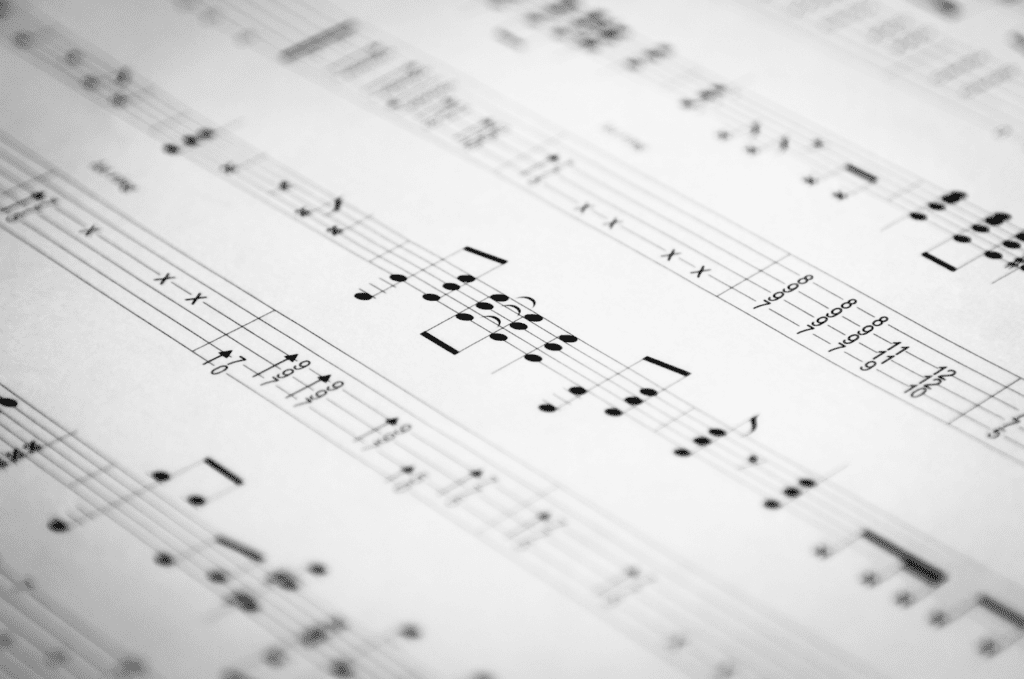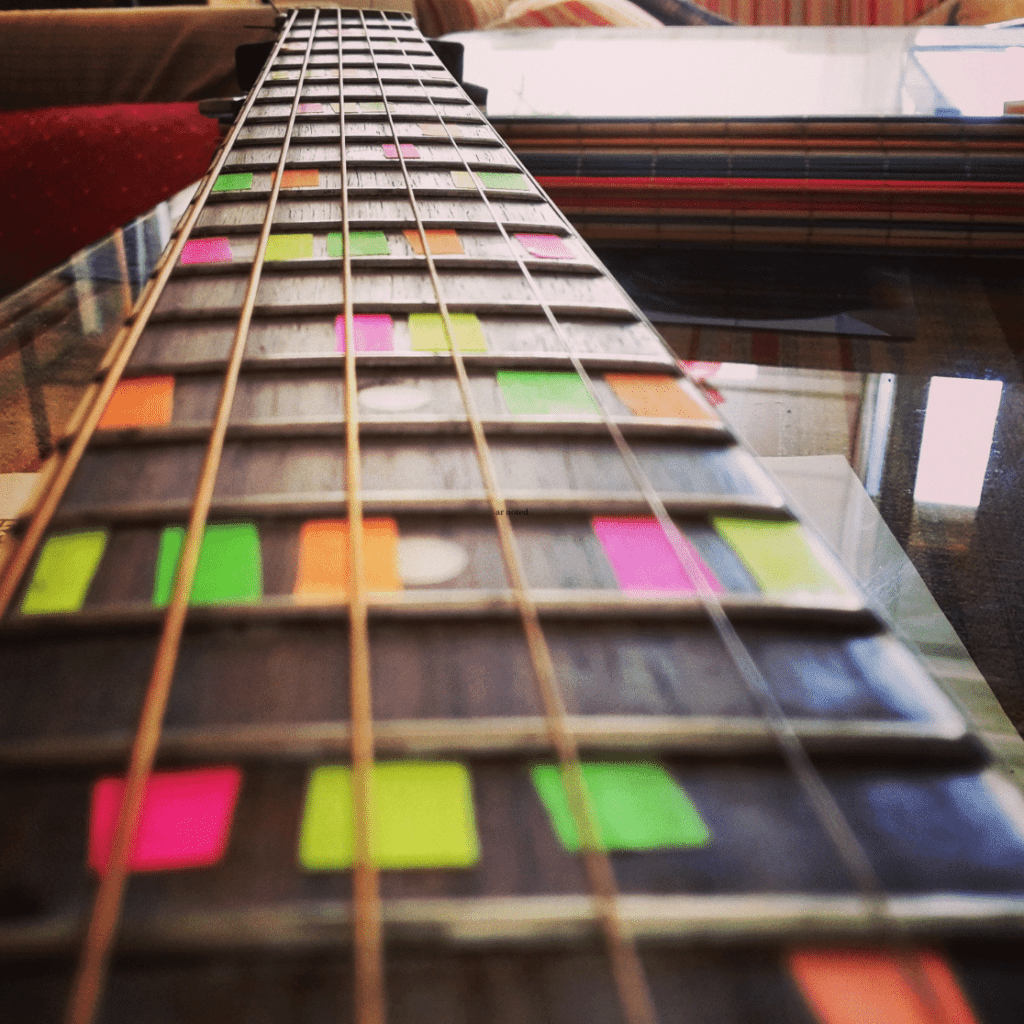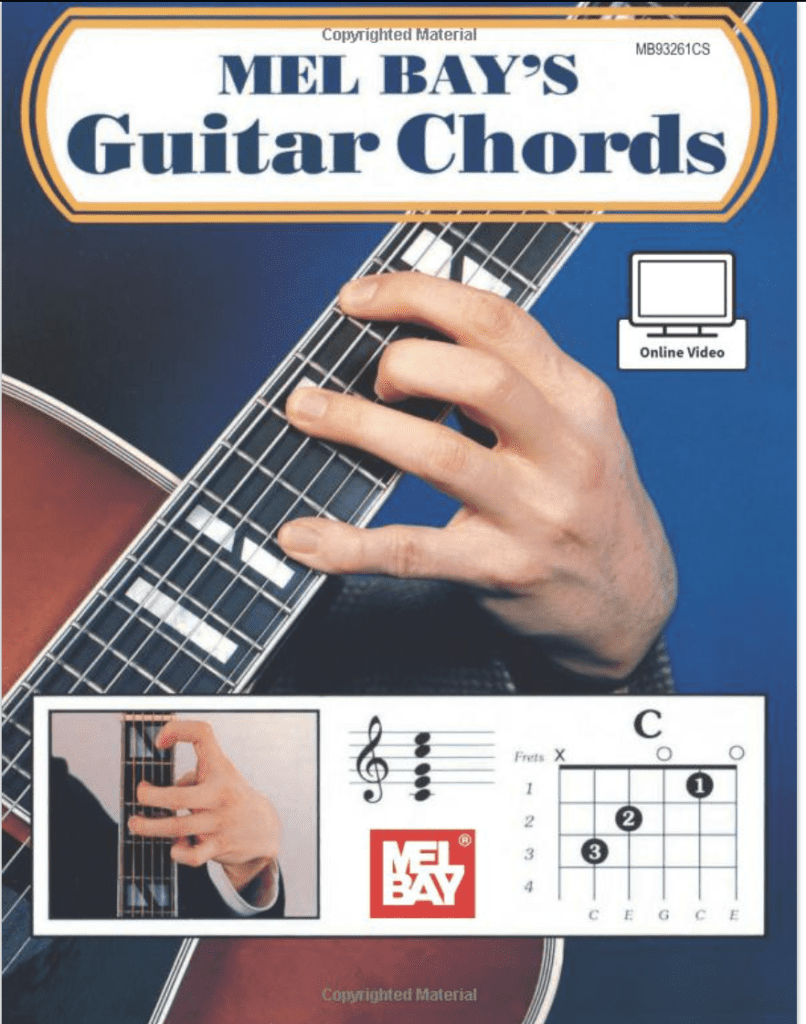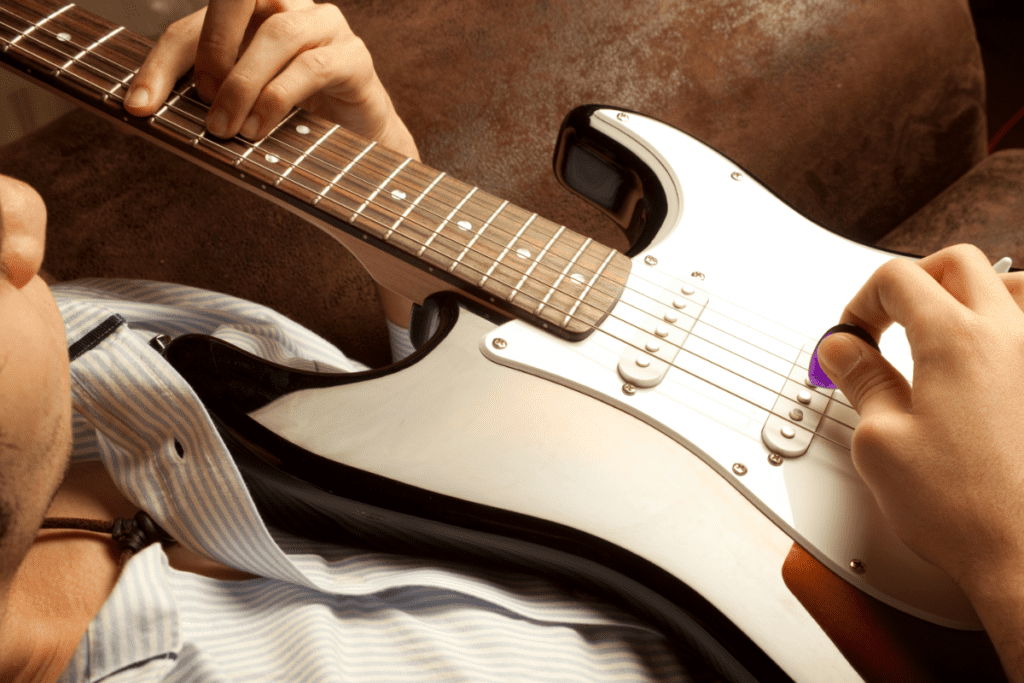I am a self-taught musician. I love saying that. And you know what? It really wasn’t all that hard to learn the guitar on my own. Sure, I wish I would’ve taken a few hours of lessons from a teacher, just to get some base of theory. But I learned it all anyway. If you’ve always found yourself intrigued by the guitar, but didn’t really want to commit your time or money to lessons, you can still teach yourself guitar fairly easily (it’s probably the best instrument for that). I would like to give you just a few tips on how to learn to play guitar by yourself.
How to learn to play guitar by yourself? Every day a person will go into a guitar shop and buy a guitar, having no clue what to do with one. I should know, I did it myself. By doing this you give yourself a choice:
A. Spend more money on guitar lessons for a structured learning environment with a teacher who is (hopefully) well experienced.
B. Go it alone, try and teach yourself picking things up from books, magazines, or the internet as you go.
Option B is a lot cheaper which is the initial reason I chose it. However, there is another positive, you don’t get bored! If you (like me) have chosen to learn by yourself then your discovery will continue for years and years. You will be constantly excited and stimulated by your instrument.
However, without some guidance, you can fall into traps that will slow you down and make your playing sloppy. Here are some hints and tips to make you a better player, faster!
Table of Contents
Tip #1: Learn Tabs
Tabs (or tablature) are a simplified version of standard notation for guitar (and other instruments, such as bass guitar, ukulele, banjo, and more). They are super easy to learn and extremely useful. I wrote a guide about reading guitar tabs.

Tip #2: Learn the Fretboard
This is one of the most important pieces of advice I can impart to you. Learn all the notes on the fretboard and where they are in relation to the other notes. This will allow you to play more fluently and remain in key. Your playing will always sound on the button and you will be able to write music and jam with others more effectively. Check out this article I wrote about memorizing the fretboard.

Tip #3: Incorporate Alternate and Economy Picking
It will make your playing more even, it will make your playing faster and it will make you sound better. Using only downstrokes is OK sometimes but the majority of the time you will need to use alternate picking to get anywhere. Try going up and down any scale patterns you know using strict alternate picking.
If you don’t know any guitar scales use a chromatic pattern instead. For example, frets 5,6,7, and 8 on all six strings using all four fingers respectively. This won’t sound musical but it will exercise your picking and your fretting. Your picking pattern should start with a downstroke, then continue, up, down, up, down, all the way up and down the pattern you have chosen. Do this with a metronome and gradually pick up the pace. You’ll be shredding in no time! I wrote an article covering a good way you can learn alternate picking fast.
After you’ve got some alternate picking experience, learn economy picking. The sooner you’ll learn it, the easier it will be. And it is one of the most useful picking techniques.
Tip #4: Learn The Chords
Any guitar player needs to know a few chords. If you want to learn guitar by yourself, you should too. Even if you just learn the shapes and the names, you don’t have to know the formulas or the construction. Chords will get your ears tuned in to a specific key sound, they will allow you to develop a sense of what sounds good and what sounds bad. Chords are essential to songwriting. With three chords you can learn a multitude of songs. Impress your friends, start with Am, C, and G!
When I learned to play, I bought a chord book (that I really can’t recommend enough: Guitar Chords by Mel Bay. It is the most comprehensive chord book I’ve read, and really gives you a good base for chord theory (which is not particularly difficult to understand but nevertheless vital in the learning process). teaching yourself the guitar starts with a good foundation of chords.

Tip #5: Learn Some Scales
Guitar scales are the foundation for (almost) every song. The major scale is the most common one and is estimated to be used in more than 80% of the songs you hear. Learn a few scales, play some solos, understand why they sound the way they do. It sounds a lot harder than it is. Check out this article to learn guitar scales.
Tip #6: Only Upgrade When You Need To
If you are on your first guitar you don’t need an amp that costs four times as much as it! If you don’t gig, you need little more than a practice amp. Once you start to play a show or two you will want an amp that gives you a little more of a serious output. Then you can start to think about upgrading. The same goes for a guitar and fancy effects pedals. If you can’t play the guitar, a $4000 razorback, a marshal stack, and 30 pedals won’t make you sound any better. Concentrate on your techniques and keep the money in your bank account, for now!

That being said, if you play the acoustic, I wrote an article about 5 cheap acoustic guitar upgrades you should check out. If you play electric, I wrote about Improving electric guitar tone on a budget.
Tip #7: Soak Up As Much As You Can
Start perceptively listening to the music of your favorite artist and try to learn how to play some of their songs. When I first started really getting serious about it, I listened to a whole lot of John Mayer, then simply looked up the tabs online to learn the songs (I wouldn’t recommend Mayer at first because some of his songs, i.e. “Neon,” are very advanced). My recommendation for starting out is country music. Laugh though you might, the simplicity of much of modern country will at least help you learn basic chord progressions more than possibly any other genre.
in order to learn to play the guitar by yourself, you should listen to and try and learn from as many different styles of music as you can. There is not a style of music that you cannot use to discover more about your guitar, what it is capable of and what you are capable of. Dance and Electro music can teach you as much as rock and metal. Throw some acoustic fingerstyle action in there every so often, I dare you to get bored!
Tip #8: Keep Your Ears Open
In order to learn the guitar by yourself, you need to learn from different styles of music. To do that, you will have to listen to different styles of music. So keep your ears open, listen to the radio and analyze what is playing. Go to the music shop and buy something you wouldn’t normally go for. Or get a recommendation from a friend and follow it up. The more you listen to, the more different things you’ll be able to add to your “collection”. This will help you a lot with improvisation and when jamming with friends.
Tip #9: Don’t be afraid to ask for help
Dedicated musicians are typically more than happy to help out a little. I’ve even surprised myself in my utter willingness to teach friends some things on the guitar whenever they wanted to learn. This might even be the best way to learn basic chords before the theory starts clicking with you.
Tip #10: Practice every day
Even if only for 30 minutes. Keeping a consistent routine will allow your learning to flow more smoothly. Skip too many days and you may have to review what you thought you already had learned. If you really want to know how to learn to play guitar by yourself, practicing every day will make or break your progress.
Finishing Thoughts
Of course, this is only my advice, some things that have helped me. Make some tweaks and adjustments, as there’s no one “how to learn to play guitar by yourself” that everybody should follow. If you have embarked on learning the guitar by yourself then it’s your own adventure, so make the most of it. Just make use of a guide every now and then to keep you on the route to sharp and spectacular guitar skills.